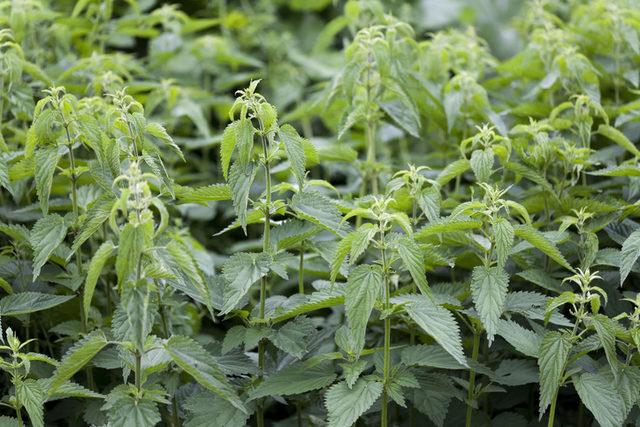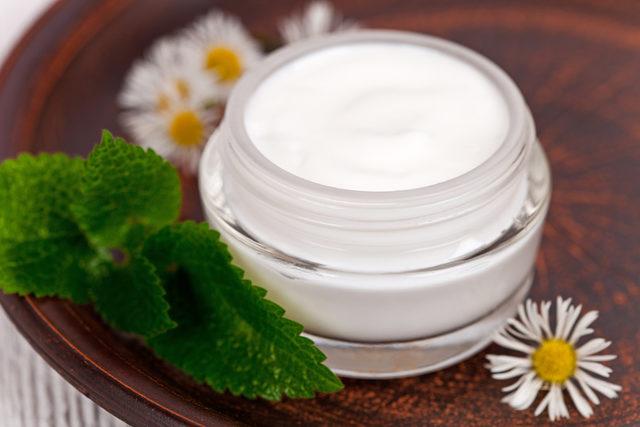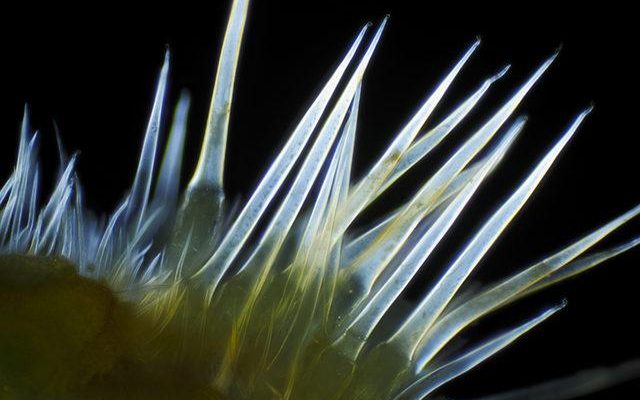Prof. Dr. İbrahim Saraçoğlu emphasized that nettle, which is very rich in vitamin C and protein, is extremely beneficial. Stating that there is a misconception that nettle will tire the liver, the expert said, “If I had the right to choose 5 foods, it would be my first choice.” He stated that this plant can reduce inflammation, hay fever symptoms, blood pressure and blood sugar levels.
Nettle leaves have hair-like structures that not only sting, but also cause itching, redness and swelling.
Nettle, which usually grows spontaneously on roadsides, fields and gardens, blooms between May and August and is collected in the summer months. Rich in vitamins A and C, nettle prevents the formation of free radicals with its antioxidant content. With this feature, research has been conducted on nettle for cancer treatment.
THE BENEFITS ARE NOT ENOUGH TO COUNT
It removes toxins with its diuretic feature.
Nettle has a diuretic effect due to the flavonoid compounds and mineral substances it contains. This diuretic feature of nettle allows the removal of toxins from the body. Thus, the functioning of the intestines is regulated and food intake is increased. At the end of this, the digestive system continues to function smoothly. In addition, nettle stimulates the lymph system and helps remove excess toxins from the kidneys.
It prevents the formation of kidney stones.
The fact that nettle is a diuretic is also important for kidney health. With this feature, nettle protects the bladder from infection and edema and prevents the formation of stones and sand in the kidneys. If there are stones and sand, it allows them to be thrown out easily.

Nettle, which produces red blood cells, is good for anemia.
Nettle is very useful as it contains vitamin C and iron minerals necessary for the production of red blood cells. Nettle, which increases red blood cell production, increases blood circulation. Thus, wounds heal quickly and energy increases as there is no problem in transporting oxygen to the cells. For this reason, as a result of regular use, nettle is good for chronic fatigue and anemia.
It regulates blood pressure and protects heart health.
Nettle, which regulates blood circulation and increases the production of red blood cells, helps balance blood pressure with these properties. Thus, nettle, which is beneficial for cardiovascular health, ensures healthy circulation.
It is good for the respiratory system and stops cough.
Nettle has been found to be good for respiratory diseases, especially hay fever, asthma and allergies seen during seasonal changes, and has begun to be used in their treatments. Nettle tea has therapeutic properties for the discomfort commonly known as dry cough.
It is a good helper in allergy treatment.
As a result of research conducted on nettle, which releases histamine to protect itself, it has been observed that the compounds obtained from this plant significantly reduce allergic reactions. It has been observed that the symptoms of those with asthma decrease when consumed regularly.
It protects bone health and is good for rheumatism.
Boron mineral, which ensures the preservation of calcium content in the body, is contained in nettle. Nettle, which ensures that calcium, which is important for bone development and health, remains in the body, can prevent or slow down the onset of osteoporosis. On the other hand, washing and massaging the feet with nettle juice is good for rheumatism pain.

Prevents prostate enlargement
We said that nettle is beneficial for urinary tract health. Nettle, which is diuretic, is an important aid in the treatment of prostate cancer. As a result of research, it has been observed that nettle is effective in the treatment of prostate-related disorders such as painful urination, dribbling after urination and impaired urine flow.
It beautifies the skin and eliminates blemishes.
Extracts prepared with nettle have been shown to reduce the growth of acne and protect against bacterial infections if applied to the skin. With its antioxidant properties, nettle reduces wrinkles, makes the skin look younger and has anti-aging properties. Nettle also increases blood circulation, accelerates healing and reduces the appearance of scars and blemishes. Therefore, nettle is used in the treatment of chickenpox, eczema and burns. Nettle is generally applied to the skin in the form of tonic and mask.
It improves the milk quality of breastfeeding mothers.
Milk production and the quality of milk increases with nettle tea consumed during the postpartum period. It will be beneficial to use it during this period after consulting with experts.
Provides oral and dental care.
Tonic prepared with nettle, which has antibacterial properties, is very useful in oral and dental care. To benefit from this feature, boil the water in which you add nettle and gargle after it cools.
It nourishes and strengthens the hair.
Nettle has properties that strengthen hair and soothe the scalp. For this, you can wash your hair with freshly boiled water prepared with nettle.
NETTLE CURE
nettle tincture
The roots removed in spring or autumn are washed thoroughly in plenty of water, chopped as finely as possible and filled up to the neck of a bottle. Enough 35-40 degree ethyl alcohol is added to reach the roots, shaken every day and left in the sun for 14 days, and at the end of the period, it is filtered through a cheesecloth. It can be stored in dark colored bottles in a cool place for years.
Hand and foot baths
Two handfuls of washed roots, stems and leaves are placed in 5 liters of cold water, left for 10-12 hours and then heated to boiling point. Plants may remain in the water during bathing. This bath water can be reheated and used 2-3 more times.
Nettle juice for hair care
4-5 handfuls of fresh or dried leaves are placed in 5 liters of water, heated over low heat to boiling point, infused for 5 minutes and then filtered. When using the root, 2 handfuls of finely chopped roots are soaked in cold water for 10-12 hours, then heated to boiling point and allowed to brew for 10 minutes, then filtered. In this case, lye soap is required for washing hair.

